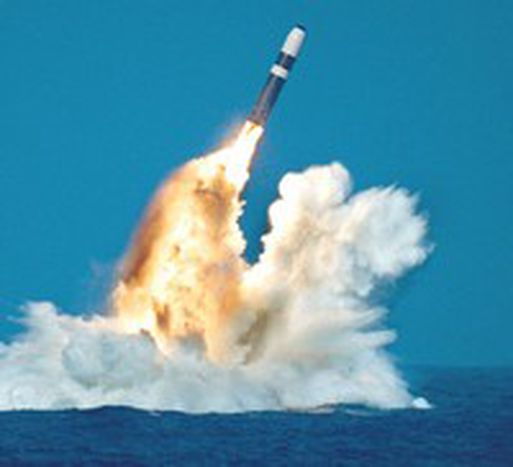
Missiles in East Europe – for or against the EU?
Published on
Translation by:
 olwen atanackovic
olwen atanackovic
Plans to build US missile sites force Europeans to reconsider their position
Astonishing events are currently being acted out on the stage of global politics. The USA wants to deploy new anti-ballistic missiles in Poland, accompanied by a radar guidance system in the Czech Republic, on the professed basis of protecting the European Union and itself against attacks by Iran and North Korea. The equipment should be operational from 2011. Russia feels threatened. There are faraway rumblings coming from China. The Czech and Polish governments are prepared to give their approval, although surveys indicate that the majority of the population in both countries opposes the deployment.
Momentum of US armament
Talk now surrounds the threat of a new edition of a Cold War. A simple glance at the globe shows neither Iran nor Korea possess missiles that would be capable of surmounting the distance in question.
What is actually then at issue if the publicly professed aim of protecting the EU is merely a sham? A look at the long-term momentum of US armament is useful. After the Cold War, the USA did not actually disarm, it simply converted. The so-called Star Wars programme was transferred step-by-step to a land and sea backed system of missile bases. In the course of NATO expansion since 1991, this has incorporated countries of the former Warsaw Pact and Eastern Europe. In 2015, the worldwide deployment of radar guidance systems should be completed. In parallel to these measures the USA has extracted itself from all key international armament limitations, including the Non-Proliferation Treaty.
Bridgehead Europe
In the strategic conception of the USA, Europe used to act as a ‘bridgehead’ for the domination of Eurasia and in particular for restraining Russia. Japan acted as a second bridgehead on the Asian side. In the meantime the Iron Curtain has fallen. The EU has gradually expanded to the borders of Belarus, Moldova, and the Ukraine.
The ‘strategic partnership’ between the EU and Russia appears to be resulting in an increasingly close energy partnership, taking the example of Germany in particular. The Euro is already seriously competing with the dollar to be the oil currency. The European Defence Community, which actually belongs to NATO, is active in missions independent of NATO. From a US point of view, this development is a serious threat.
EU fracture
Simultaneously, the EU has inherited historical conflicts with its expansion into former Warsaw Pact states, straining its relationship with Russia. The potential lies here for a fracturing between ‘old’ and ‘new’ Europe, and national policies that are friendly and adversarial towards Russia, biased in favour or critical of the USA. The USA is attempting to use the new EU members Poland and the Czech Republic to once again draw closer to the European Union.
Russia has identified this motive behind the newest US interventions, as emerged in Vladimir Putin’s speech during the Munich Security Conference. He criticised the planned expansion of NATO sites into Poland and in the Czech Republic as US, not EU, aggression. The focus of his speech demonstrated Russia’s fundamental interest in a strategic partnership with the EU.
China provokes
One month before the USA’s advance, it is pertinent to note that a missile was launched in southwest China which destroyed the Chinese weather satellite Fengyun 1C at a height of around 860km. With this, China became the first country capable of shooting down satellites from the ground. The USA feels provoked because its military satellites orbit at the same height as the shot-down Chinese weather satellite.
In addition to this, setbacks are looming in the Arabic region and the crisis surrounding the dollar as the lead currency for oil. For this reason, the requests made of the East European members of NATO - Poland and the Czech Republic - can be read less as a threat against Russia and more as an effort to once again tie Europe to the USA. At the very least, it's to hamper the partnership between Russia and the EU.
The actual construction of the announced sites is clearly open to negotiation as illustrated by the visit of US Defence Minister Robert Gates to Moscow, the intensive negotiations in the NATO-Russia Council and lengthy discussions among European interior and defence ministers.
The debates in Poland and the Czech Republic suggest the same. Despite government agreement, it is yet to be decided whether the countries will bow to US demands or not. Those critical of government statements say that too much may be at stake if they locate themselves between the frontlines.
The decisive question at this stage is not whether there is a new ‘Cold War’. Where does Europe stand today in the context of the new world powers? Is it ready to continue to be a ‘bridgehead’ for the maintenance of the US claim to global dominance? Or will it emancipate itself together with Latin America, Russia, India and China to create a cultural order corresponding to the new evolved global power relations?
The author is a member of the correspondent network n-ost
Translated from US-Raketen in Ost-Europa - für oder gegen die EU?


